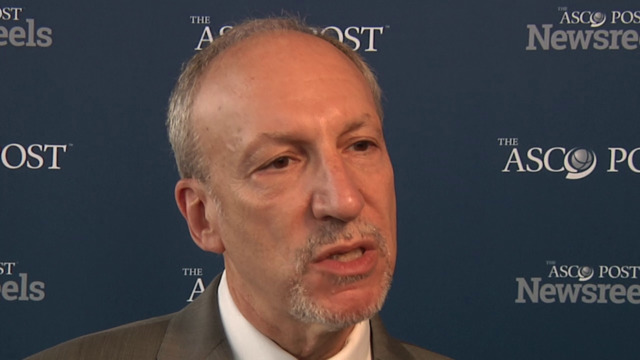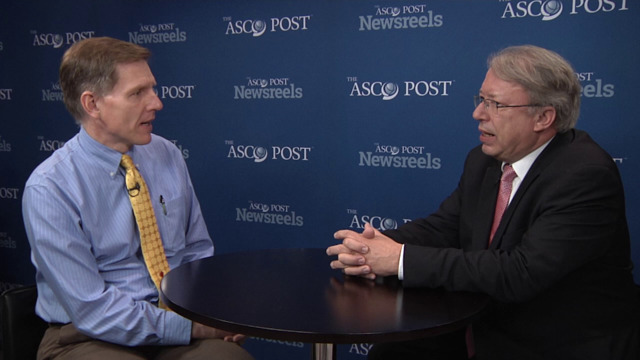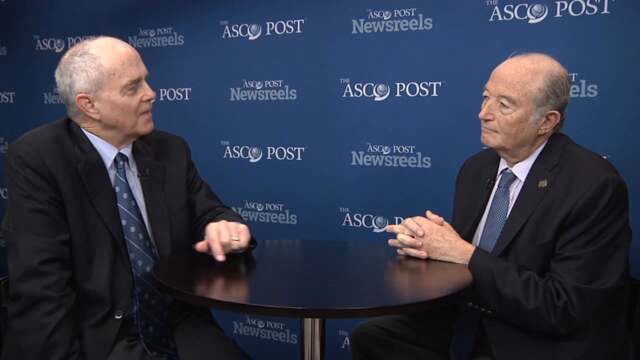Nicholas C. Turner, MD, PhD, Summarizes Results of the PALOMA3 Breast Cancer Study
2015 ASCO Annual Meeting
Nicholas C. Turner, MD, PhD, of the Royal Marsden Hospital NHS Trust, discusses fulvestrant and palbociclib as a treatment option in pre- and postmenopausal women with hormone receptor–positive, HER2-negative metastatic breast cancer that progressed on prior endocrine therapy (Abstract LBA502).
Lee S. Schwartzberg, MD
Lee S. Schwartzberg, MD, of The West Clinic, describes a new initiative of the Association of Community Cancer Centers, designed to speed the adoption of immunotherapeutics in the community setting, where 60% of cancer patients are treated.
Ruben A. Mesa, MD, and James O. Armitage, MD
James O. Armitage, MD, of The University of Nebraska Medical Center, and Ruben A. Mesa, MD, of the Mayo Clinic, discuss pacritinib and its significant efficacy in myelofibrosis (Abstract LBA7006).
Daniel A. Vorobiof, MD, and Bernardo Leon Rapoport, MD
Daniel A. Vorobiof, MD, of the Sandton Oncology Centre, and Bernardo Leon Rapoport, MD, of The Medical Oncology Centre of Rosebank, discuss the first study to evaluate the efficacy and safety of a single dose of intravenous fosaprepitant. The use of this NK1 inhibitor and another (rolapitant) in a second study discussed may change the management of chemotherapy-induced nausea and vomiting and improve quality of life for patients (Abstracts 9629 and 9615).
Claus Garbe, MD, and Anthony J. Olszanski, RPh, MD
Claus Garbe, MD, of the University of Tuebingen, and Anthony J. Olszanski, RPh, MD, of Fox Chase Cancer Center, discuss the survival of sentinel lymph node-positive melanoma patients with and without complete lymph node dissection (Abstract LBA9002).
Eduardo Cazap, MD, PhD and James O. Armitage, MD
Eduardo Cazap, MD, PhD, of the Latin American & Caribbean Society of Medical Oncology, and James O. Armitage, MD, of the University of Nebraska Medical Center, discuss oncology from an international point of view.





